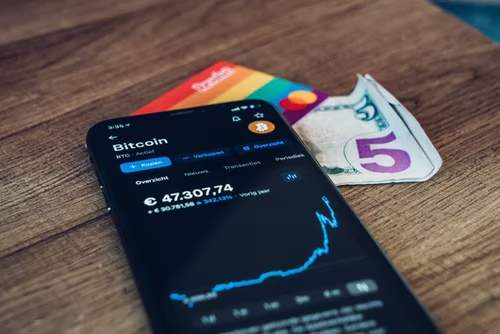
Bitcoin exploded into the public awareness in 2017, hitting a market cap of over $270 billion. Many people have been drawn to this mysterious digital currency, which means more and more stories about people losing their life savings. In this article, we’ll discuss the top myths about cryptocurrency trading safety.
What you'll learn 👉
1) Different experience
The truth is that everyone involved in cryptocurrency transactions is going to have a different experience. Some traders have never once had any fraud or digital theft problems, while others have had their accounts hacked or stolen on a near-daily basis. You cannot predict how safe your account will be based on what other people tell you.
2) Cryptocurrency transactions are safer than traditional online banking.
- Online banking is the number one target for hackers and scammers. Any time you sign into a website or email, your account could easily be compromised by a thief who gains access to it by masquerading as you.
- The people who provide your online banking services have been breached hundreds of times in the past, and no one knows how many accounts they’ve been hacked into.
- In contrast, cryptocurrency transactions are much more secure because they’re done on a peer-to-peer network that’s decentralized and encrypted by default.
- Using cryptocurrency is like using a hammer; it’s not the most comfortable thing, but it’s safe and well-suited to the task.
3) The “intermediary” myth
This is the idea that you need an intermediary (like a bank or exchange) involved in your transactions to make them safer. Many people believe this myth because they don’t know how decentralized exchanges work and because many media outlets sensationalize stories of stolen exchanges and wallets. The truth is that you don’t need any intermediaries if you set up your wallet, and even if you trust an exchange, any funds they store will still be more secure than funds held by banks.
4) The “bank rush” myth
Many people believe that if the value of cryptocurrencies goes up, everyone will rush to get rich by buying bitcoin. This is not what happens. Instead, everyone runs to cash out their bitcoins because it’s risky to hold onto them. Last year, many people attempted to sell their bitcoins during the “CyberMondays” and “BitcoinBlackDays” because they wanted to turn their money into fiat currency. This caused a significant spike in prices, creating what was referred to as a “crypto-crash. “
5) The “hype cycle”
It is an interesting concept that many traders use to gauge the overall health of a new asset or a stock.
- When a new cryptocurrency or altcoin is in its infancy, it’s considered a “Bubble,” and the price will rise to unsustainable levels.
- Eventually, it crashes. Then, when people have lost all of their money and stop buying the “toy,” it’s said to be in a “Trough.”
- After this, there is typically a period where the market is in an In-between state before another bubble takes hold.
- To keep your investments safe, you should often wait for this final stage before making any decisions on whether or not your investment is worthwhile.
6) The “security” myth
People often assume that they’ve lost all of their money because someone stole their coins. This is not the case. If a thief gets ahold of your coins, it will be tough for them to cash out the funds unless you’re using a centralized exchange or if you’re trading on an unregulated trading platform that’s been hacked. In those scenarios, those traders would have been able to redeem their funds from those platforms. If they remained anonymous enough, any digital fingerprints could be wiped clean pretty much overnight. The point is that you must do everything in your power to protect your privacy by never revealing too much information about yourself or your online presence.
7) The “tech” myth
Many people assume that the more high-tech a cryptocurrency is, the more secure it will be. This is often not the case, and you shouldn’t ever base your decisions on how it’s been described as a “cool new technology.” Most of the currencies that have been hacked were based on older versions of Bitcoin. In 2015, for example, hackers created a new type of cryptocurrency called DASH, which had some interesting technological innovations but was still based on an older version of Bitcoin. The truth is that there are no secure coins; you should only invest in safe and highly rated coins.
8) The “trusted” myth
Many people base the security of their wallets on how trustworthy they are. This is a mistake because anyone can be honest or reliable, even if they’re part of a scam. There are still plenty of scammers who have never stolen money from their customers, and their word is just as valuable as anyone else’s word.
9) The “decentralized” myth
Many people think decentralized exchanges are safer than centralized exchanges. This is not necessarily true because even decentralized exchanges have flaws, so you should still be careful when deciding where to safely trade cryptocurrencies. Also, it’s important to note that many altcoins are not decentralized; many of them get created by companies that are still in control of the development team.
10) The “perceived value” myth
Traders often believe that they’ll be more secure if they hire a security expert to manage their coins, and this isn’t necessarily true because clever tricks can fool anyone.
11) The “lack of regulation” myth
Many people believe that the lack of regulation means their cryptocurrency is immune to theft, and this is not true because there are still flaws in the system, and thieves will always find new ways to exploit them.
12) The “inside joke” myth
Many people are tempted to use their cryptocurrency because of their friends’ or coworkers’ inside jokes. While some may find this amusing, you really shouldn’t base your decisions on just one person’s opinion. For a cryptocurrency to be successful, the market needs to know who will use it and why they’ll use it, and that’s something that can only be determined by trial and error.
Conclusion
The truth is that there are no guarantees when it comes to cryptocurrencies in general, and in particular, when it comes to hardware wallets. This technology is constantly being improved, however, and the industry is getting more secure. If you want to invest in a hardware wallet to store your funds, make sure you research it first and that the company that created it has a good history of protecting its users. While hardware wallets do have their flaws, people should still use them anyway because they’re safer than online options such as exchanges or web wallets.






